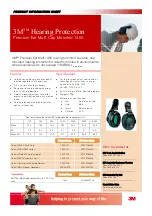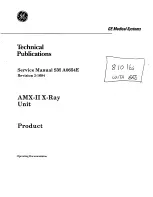
7-1
Section 7 True and False Echoes on Display
1
2
3
4
5
6
7
8
9
10
11
12
13
14
15
16
17
18
19
20
21
22
23
24
25
26
27
付録
Section 7
True and False Echoes on
Display
The radar operator has a role of interpreting the radar displays to provide his best aid in manoeuvring
the ship.
For this purpose, the operator has to observe the radar displays after fully understanding the
advantages and disadvantages that the radar has.
For better interpretation of radar display, it is important to gain more experiences by operating the radar
equipment in fair weathers and comparing the target ships watched with the naked eyes and their
echoes on the radar display.
The radar is mainly used to monitor the courses of own ship and other ships in open seas, to check
buoys and other nautical marks when entering a port, to measure own ship’s position in the coastal
waters relative to the bearings and ranges of the shore or islands using a chart, and to monitor the
position and movement of a heavy rain if it appears on the radar display.
Various types of radar display are explained below.
7.1 Radar Wave with the Horizon
Radar beam radiation has the nature of propagating nearly along the curved surface of the earth. The
propagation varies with the property of the air layer through which the radar beam propagates. In the
normal propagation, the distance (D) of the radar wave to the horizon is approximately 10% longer
than the distance to the optical horizon. The distance (D) is given by the following formula:
D = 2.23
(NM)
h
1
: Height (m) of radar antenna above sea level
h
2
: Height (m) of a target above sea level
The following figure illustrates a diagram for determining the maximum detection range of a target that
is limited by the curve of the earth surface in the normal propagation.
Radar Wave with the Horizon
Summary of Contents for JMR-5410-4X
Page 2: ......
Page 25: ...xxiii NKE 2255 7 9 6HS Scanner Unit Warning Label ...
Page 27: ...xxv NKE 2103 4 4HS Scanner Unit NKE 2103 6 6HS Scanner Unit NKE 2255 7 9 6HS Scanner Unit ...
Page 54: ...Contents 20 ...
Page 68: ...Section 1 Overview 1 14 Outline Drawing of Radar Antenna NKE 2632 A ...
Page 70: ...Section 1 Overview 1 16 Outline Drawing of Radar Antenna NKE 2043 NKE 2043 ...
Page 72: ...Section 1 Overview 1 18 Outline Drawing of Radar Antenna NKE 2103 4 4HS ...
Page 74: ...Section 1 Overview 1 20 Outline Drawing of Radar Antenna NKE 2255 7 ...
Page 76: ...Section 1 Overview 1 22 Outline Drawing of Radar Antenna NKE 2255 6HS ...
Page 78: ...Section 1 Overview 1 24 Outline drawing of 19inch Display NWZ 214 NWZ 214 ...
Page 80: ...Section 1 Overview 1 26 Outline Drawing of Process Unit NDC 1678 NDC 1678 ...
Page 82: ...Section 1 Overview 1 28 Outline Drawing of Trackball Operation Unit NCE 5605 Option ...
Page 84: ...Section 1 Overview 1 30 Outline Drawing of Junction Box NQE 1143 ...
Page 86: ...Section 1 Overview 1 32 Outline Drawing of 19inch Desktop Frame CWB 1659 ...
Page 88: ...Section 1 Overview 1 34 Outline Drawing of Interswitch Unit NQE 3141 8A Option ...
Page 126: ......
Page 214: ...Section 4 Range and Bearing Measurement Methods 4 32 ...
Page 244: ...Section 5 Basic Operation of the Radar 5 30 ...
Page 324: ...Section 8 Monitoring a Dragging Anchor 8 8 ...
Page 374: ...Section 11 Setting up Screen View 11 20 ...
Page 520: ...Section 15 Maintenance Inspection 15 70 ...
Page 546: ...Section 16 Failures and After Sale Services 16 26 ...
Page 590: ...Appendix A Radar Antenna Display Unit Block Diagrams A 8 A 1 8 NKE 2255 7 9 6HS ...
Page 592: ...Appendix A Radar Antenna Display Unit Block Diagrams A 10 A 1 10 NKE 2063A ...
Page 596: ...Appendix A Radar Antenna Display Unit Block Diagrams A 14 A 2 3 NCE 5794 operation unit ...
Page 622: ...Appendix D Menu List and Materials D 8 Tools VHF Call VHF1 Call VHF2 Call VHF3 Call ...
Page 687: ......
















































